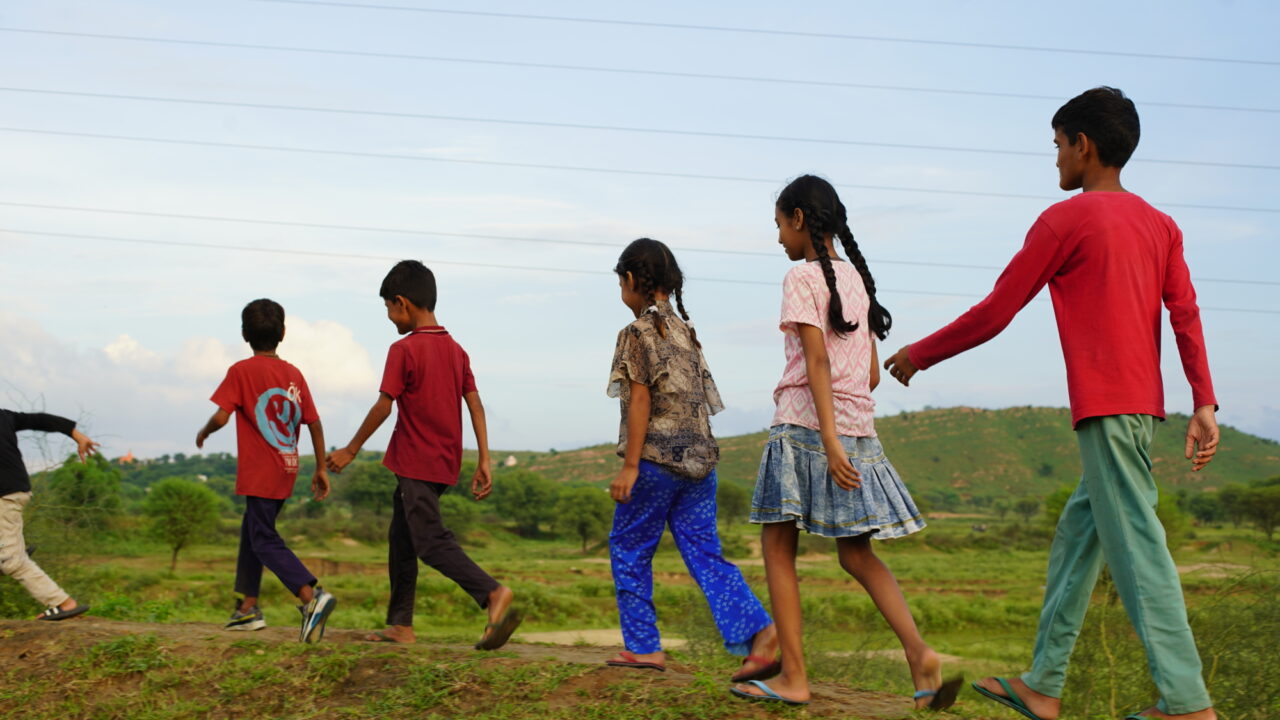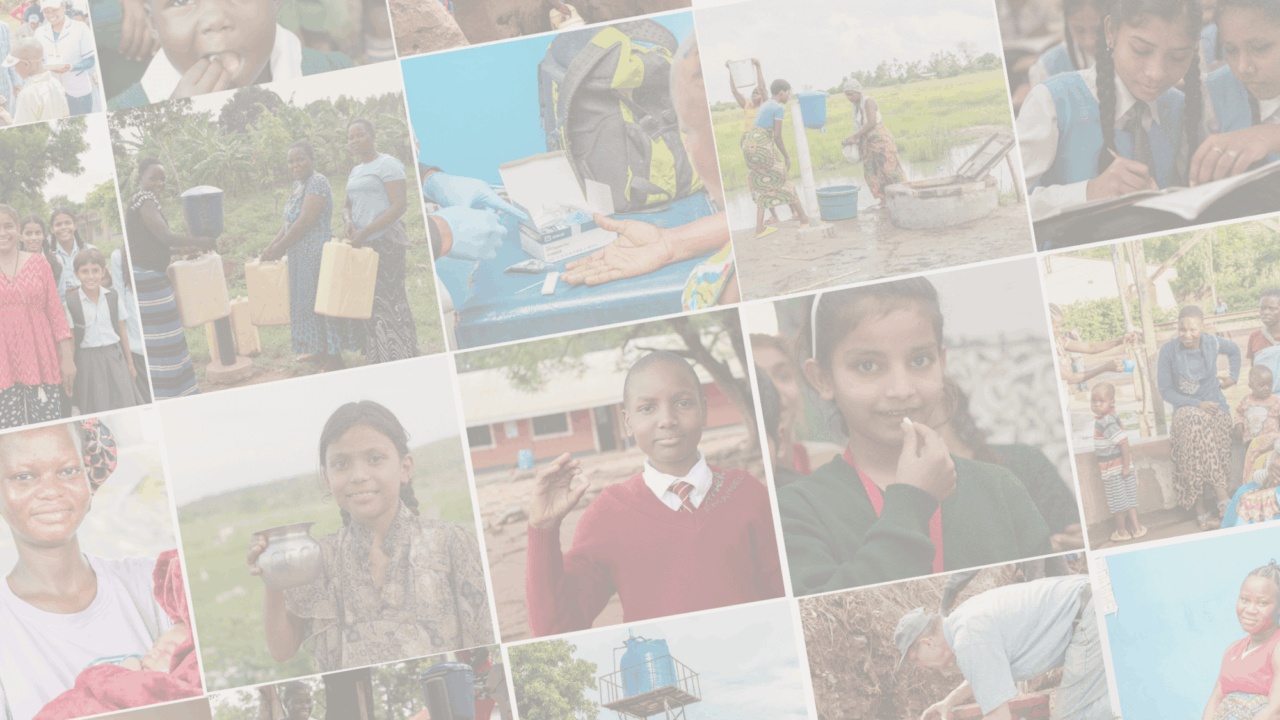
Deworm the World
We use evidence to fight worms and change lives
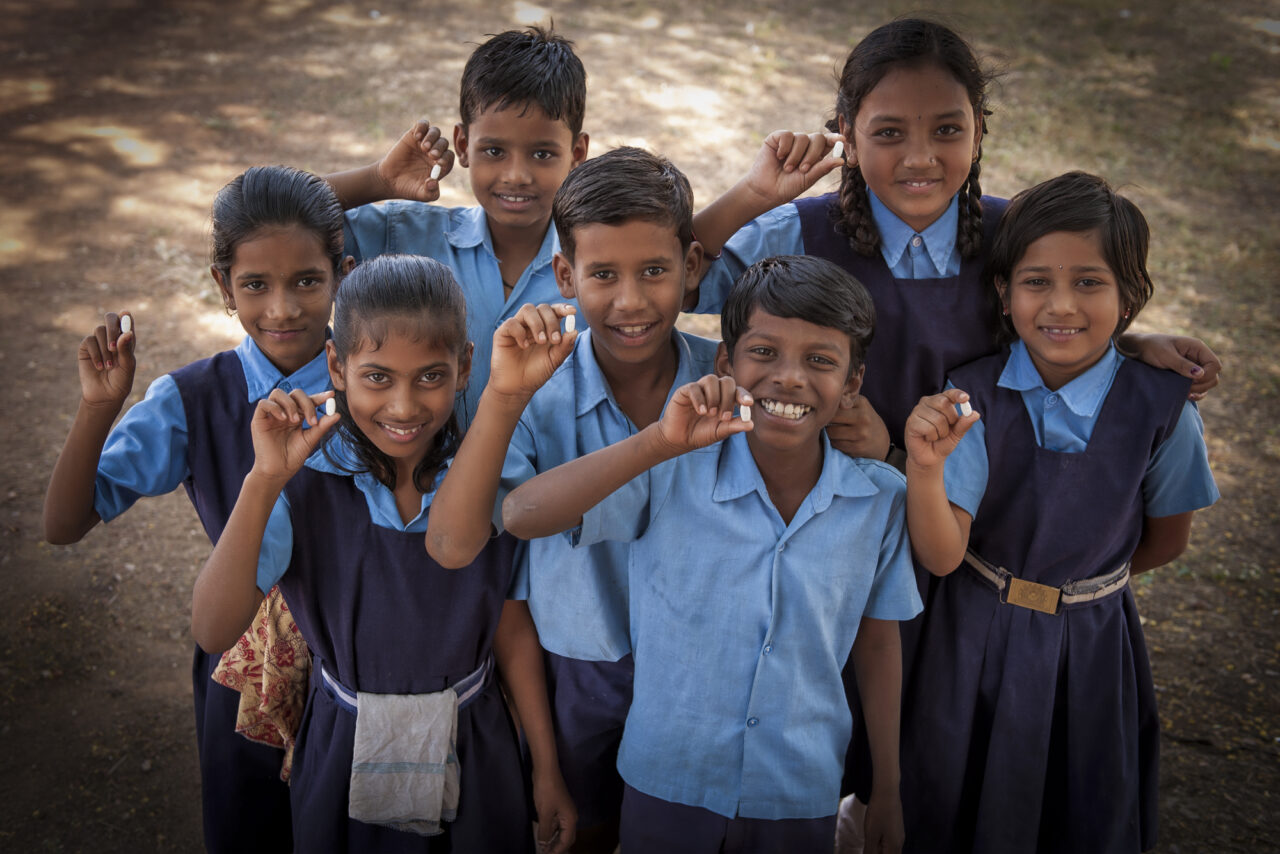
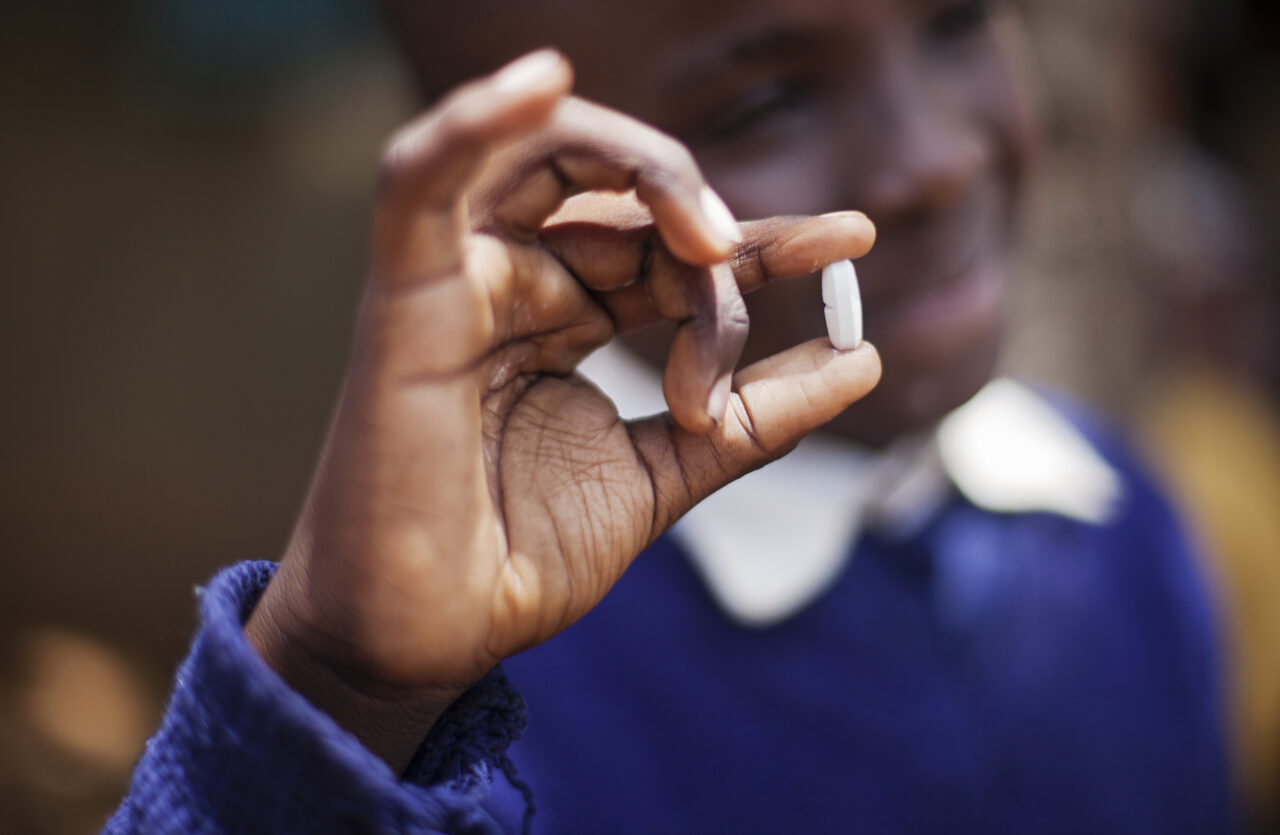
More than 895 million children are at risk for parasitic worm infections like soil-transmitted helminths and schistosomiasis.
These infections mainly occur in areas with inadequate sanitation, disproportionately affecting poor communities. Children infected with worms are often too sick or weak to attend school because their body can’t properly absorb nutrients. If left untreated, worm infections lead to anemia, malnourishment, impaired mental and physical development, and severe chronic illnesses.
A safe, effective, and low-cost solution does exist — in the form of a simple pill taken once or twice a year. Regular treatment reduces the spread of the disease and helps children stay in school and live healthier and more productive lives.
Since 2014, Deworm the World has helped deliver over 2 billion deworming treatments to children – for less than 50 cents per treatment on average.
We work closely with governments in India, Pakistan, Nigeria, Kenya, and Malawi to implement high-quality and cost-effective mass deworming programs that are resulting in dramatic reductions in worm prevalence.
- $23B
- in lifetime productivity gains from deworming
- 195M+
- children treated in India, Kenya, Nigeria, and Pakistan in 2023
- <$.50
- per treatment on average
- 73%+
- reduction in worm infections (73-97%)
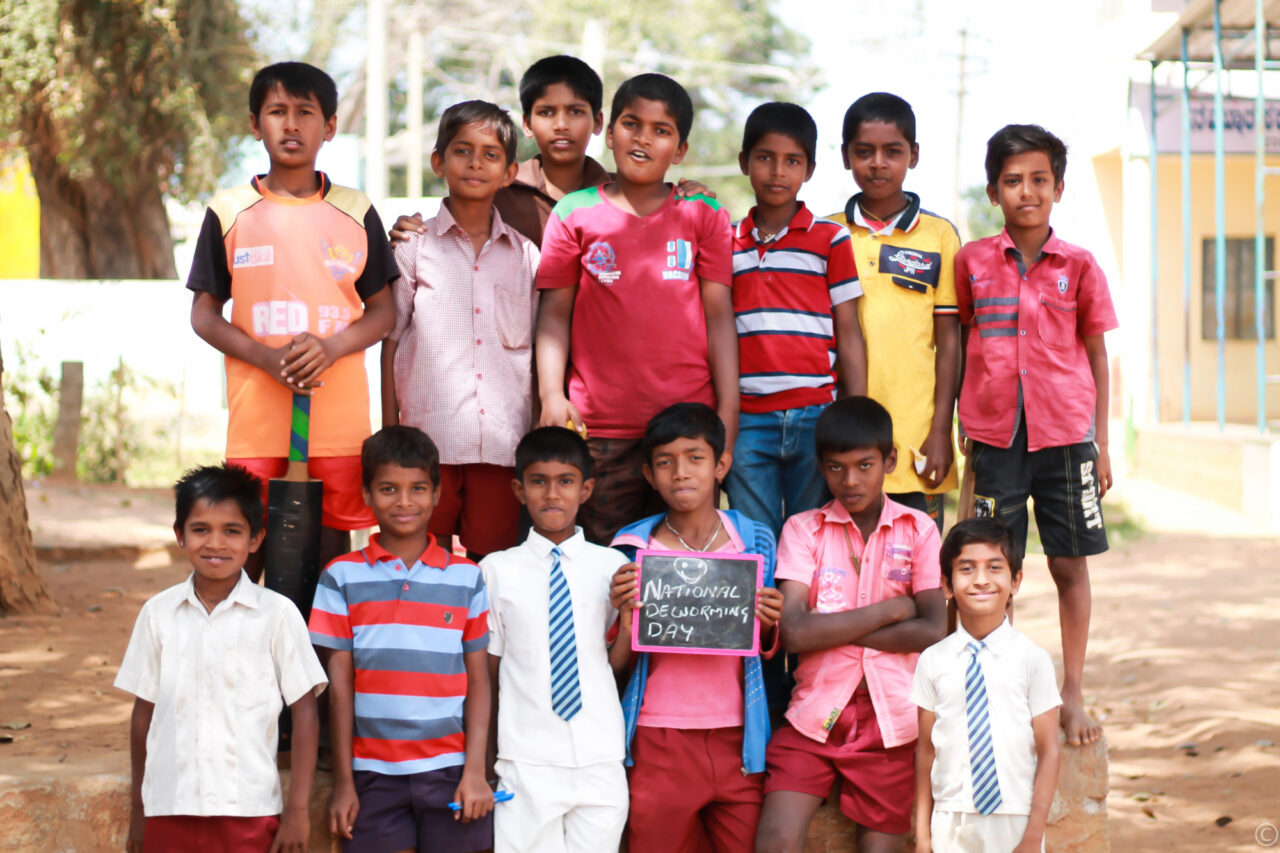
How it works: Mass deworming
Deworm the World has a uniquely effective approach. It’s built on our technical assistance model, in which we work closely with government partners, leveraging their existing infrastructure and human capital to deliver treatments to children where they already are: schools and communities.
Here are some of the reasons our unique model works:
Our delivery approach leverages existing government infrastructure and is highly customized.
Instead of building a delivery system from scratch, which would be expensive and inefficient, we leverage existing infrastructure and resources based on country context and needs.
Teachers (and, in some cases, health workers) are trained by government officials on how to safely administer deworming medication to children, with treatment targeted in certain geographic areas based on disease burden. In areas where the majority of the children are enrolled, schools provide an efficient platform. However, in areas where children are not enrolled or are in informal schools, community health workers are able to reach these children through the health system.
By using a delivery platform that works for each country’s context, we’re able to achieve high treatment coverage, driving down worm prevalence and benefiting whole communities – even those children who don’t receive treatment are less likely to get infected!
We provide end-to-end support for the government.
We work hand-in-hand with governments through our technical assistance model. At the start, we advocate with policymakers about the need and importance of mass deworming using data on disease burden. With their buy-in, we collaborate to design all components of the deworming program based on local context, such as training cascades and community mobilization strategies. We then support the launch, scale-up, and monitoring of deworming programs – working closely with government counterparts to refine and evolve the program so treatment reaches as many children as possible.
There’s no cost to families.
By working through government systems, Deworm the World is able to support treatments to children at no cost to their families. This is especially important as the children often most in need of treatment come from families least likely to be able to afford it.
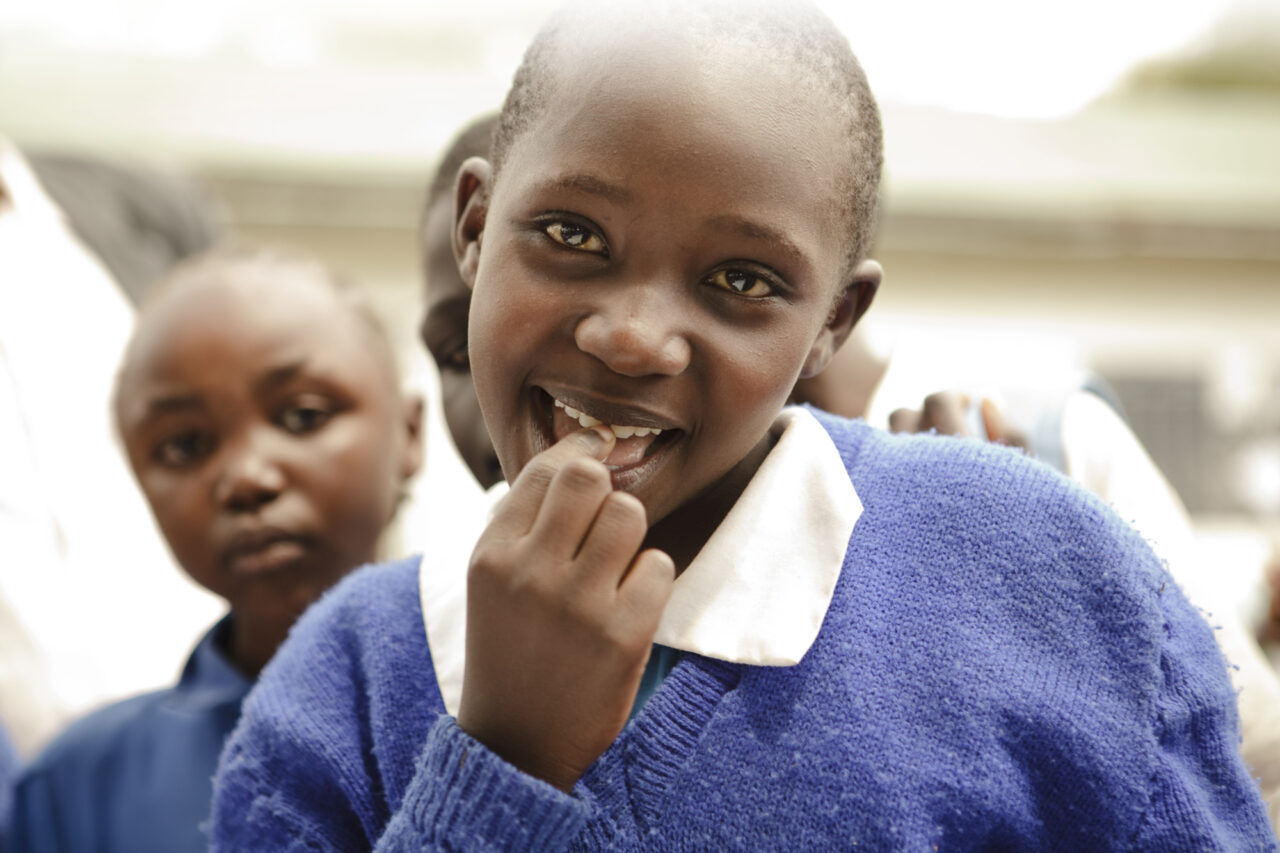
Deworm the World is based on robust evidence that shows treatment has both immediate and long-term health impacts.
Independent rigorous research shows that deworming leads to significant improvements in nutrition, cognition, school participation, and even future earnings.
A randomized controlled trial in Kenya by Nobel Laureate Michael Kremer and UC Berkeley Professor Ted Miguel found that children who received deworming had a 25% reduction in school absenteeism, when compared to those who did not. Following those same children two decades later, the researchers found that receiving two to three additional years of deworming increased their income by 13% and consumption by 14%.
A 2022 meta-analysis found that deworming leads to an average weight gain of 0.3kg in children (that’s the equivalent to moving a three-year-old from the 25th to the 50th percentile of WHO child growth standards).
Other research shows that children who were less than one year old when their siblings received deworming treatment show significant cognitive gains, comparable to between 0.5 and 0.8 years of schooling. This demonstrates the importance of spillover effects, with deworming having positive impacts even for the youngest children who aren’t able to be treated.

Give to Deworm the World
You can invest in one of the most effective ways to improve a child’s health, education, and long-term wellbeing with a gift to Deworm the World today.
